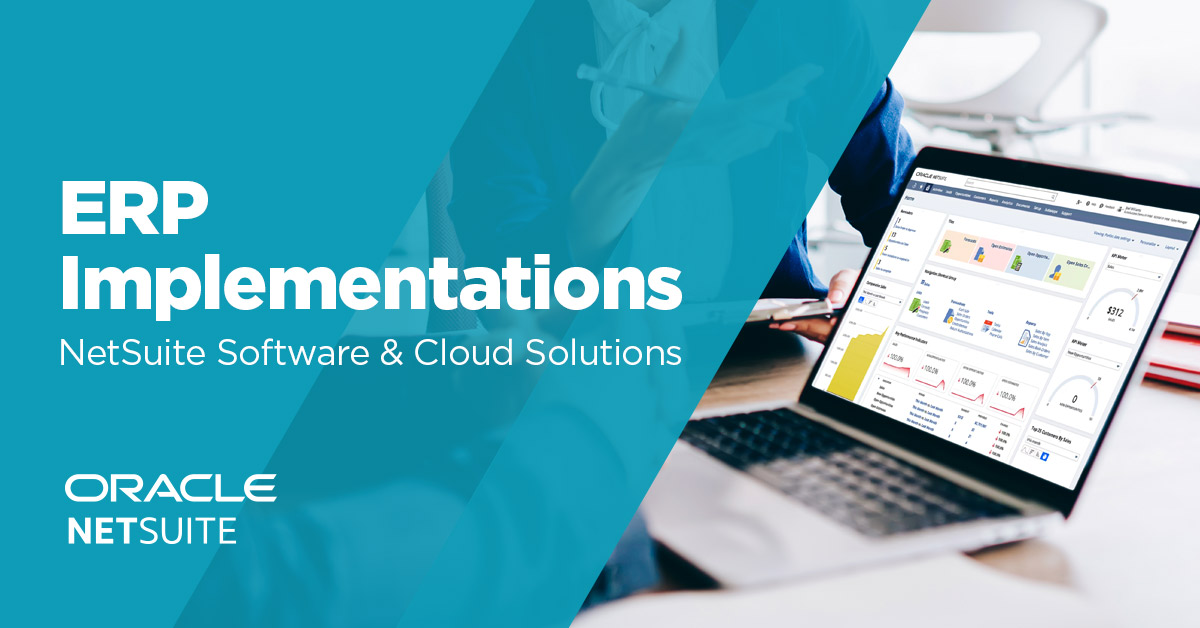Table of Contents
How NetSuite ERP Supports C-Suite Executives
Why CFOs Value NetSuite ERP
How CEOs Benefit from ERP Systems
Building a Business Case for NetSuite ERP
When ERP Is the Right Move
Why Sales Teams Support ERP Investments
Justifying NetSuite ERP Costs: ROI & TCO
Choosing the Right NetSuite Implementation Partner
What Is NetSuite ERP?
If your leadership team is asking questions like, “What is NetSuite?” or “Do we really need another business software tool?”, they’re not alone. These are common concerns when organizations begin exploring enterprise resource planning (ERP) solutions. Understanding what Oracle NetSuite ERP is and how it can drive efficiency, scalability, and growth is critical for building internal buy-in.
NetSuite ERP is a cloud-based enterprise resource planning platform designed to unify core business operations into a single, integrated system. From accounting and finance to inventory management, order processing, customer relationship management (CRM), and eCommerce, NetSuite delivers real-time visibility and automation across departments. This helps eliminate silos, reduce manual work, and streamline decision-making.
If you’re exploring digital transformation or looking to replace outdated, disconnected tools, a NetSuite ERP implementation is a strong step toward future-proofing your organization.
Request More Info About NetSuite ERP Pricing & Implementation Guide
How NetSuite ERP Supports C-Suite Executives
How NetSuite Helps CFOs
- Operational performance improvements: With more collaboration across teams within the organization, this unified system will improve efficiency and productivity.
- Insights and visibility: NetSuite ERP will enhance the ways a CFO keeps an eye on current and future cash flows and where your company stands. So informed decisions can be made for future mandates and projects that could promote growth.
- Reporting and financial compliance: Standards will be respected across varying regulators, thanks to revenue recognition solutions and more, found within NetSuite.
- Motivated teams: An up-to-date ERP solution will motivate and empower teams to work more efficiently and deliver more insights, making them feel that this is a better use of their work hours.
How NetSuite Helps CEOs
- Focus on financial and operational growth: Reinvesting in current staff by offering them an ERP system that lets them work better together. Maintaining costs will ultimately drive profitability and growth.
- Brand image: A unified system improves product service and delivery so your company’s image is strong. Employee pride and motivation will keep them further engaged and efficient in their tasks.
- An ERP that grows with your organization: As your business grows, you can add on solutions and functionalities so no processes will ever lag.
- Clear insight into financials: Full reporting capabilities ensure financials are ready when needed, whether it’s for an audit or acquisition.
Building a Business Case for NetSuite ERP
As you are building your business case for a NetSuite ERP implementation, you’ll immediately want to answer the “why?”.
Why is it time to switch or add to your systems? Why is this important for your company’s growth and will this implementation support that growth? The right answers tend to be related to reasons around encouraging the business to grow, keep it growing, or scale up.
Typical scenarios where an ERP would help, are:
- Current system doesn’t grow with your organization and can’t support further activities
- Missing a software integration and data is scattered, making it difficult to get all the data you need to manage your business
- Not enough reporting features that would help your business meet different reporting standards and requirements
And several other circumstances where an organization’s growth is dependent on taking this big step.
Why Sales Teams Support ERP Investments
It’s important to start by validating the company size and sales figures to draw a comparison with their industry average.
The cost of owning NetSuite depends on your company size and revenue. As an example, for midsize companies with revenue less than $1 billion, owning an ERP would cost around 3–5% of their annual revenue.
A larger company with revenue over the $1 billion mark would allot 2–3% of their annual revenue to owning NetSuite ERP.
This means that many organizations are unlikely to be able to successfully implement a complex ERP system. Other potential reasons an organization can’t go ahead with an ERP implementation include:
- Lack of focus or resources
- They don’t have the funds to pay for the software
- Professional services costs to implement and maintain the new system are too high
Justifying NetSuite ERP Costs: ROI & TCO
Return on Investment (ROI) and Total Cost of Ownership (TCO) are common tools you can use to build your case and justify NetSuite ERP costs and pricing.
Return On Investment (ROI)
The ROI calculation is often used to support business cases in the manufacturing industry. For example, a new machine is put in and one can amortize its cost as well as monitor cost savings and productivity that come from it.
The ROI typically measures the potential rise in productivity that the new system offers, the TCO will measure the financial impact it will have on the organization.
Total Cost of Ownership (TCO)
When implementing an ERP or a CRM, the return is harder to measure. The concept of TCO compares your current system with the new one. Be sure to look at what’s fully included in the TCO of your current applications so you can compare it with what vendors are offering.
And don’t forget the salaries of those who manage your systems. Keep track of all the extra work employees are doing to feed your older systems.
Choosing the Right NetSuite Implementation Partner
Learn more about what a successful ERP implementation looks like as well as the importance of a knowledgeable implementation team and partner.
GURUS Solutions has been a premier NetSuite partner for well over 15 years.
Contact us as we have the experience and know-how to support a diverse portfolio of NetSuite projects, within many different industries.
Learn More About NetSuite ERP Pricing & Implementation Guide


